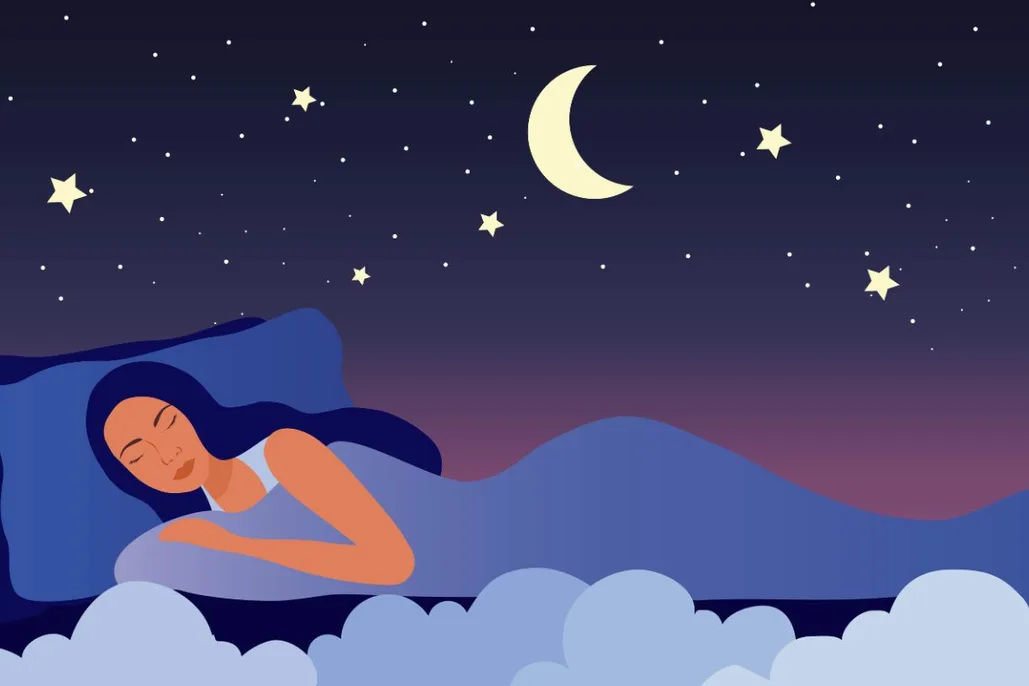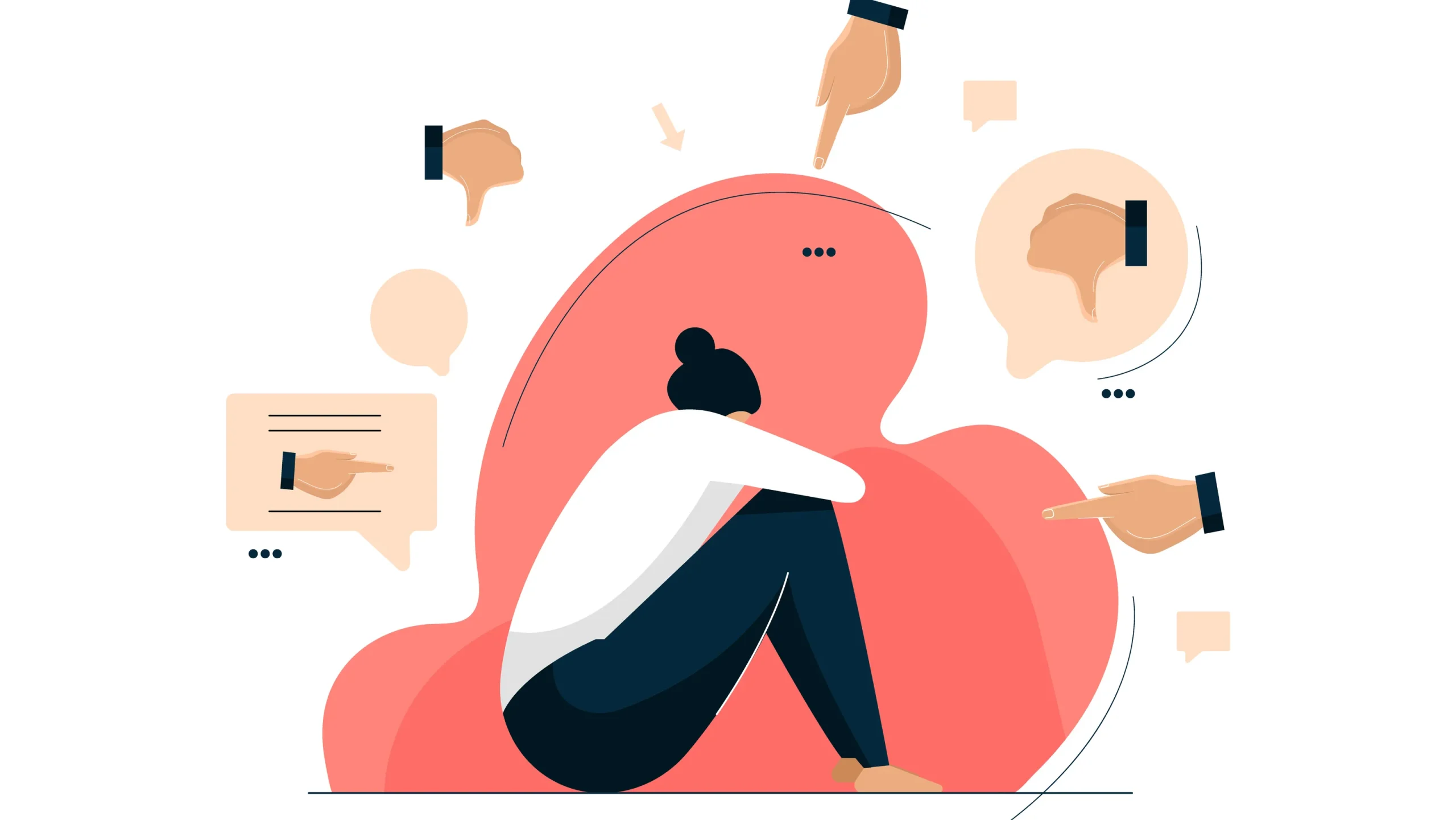A Recent Interview for Newport Beach Magazine
What are the main causes of stress you find in the Newport Beach area? Have they increased or decreased in recent years?
Stress is definitely on the rise and there are a few things bearing down on individuals and families at the moment. On the macro level, there is a lot of uncertainty in the world. Humans on the whole are actually surprisingly good at dealing with adversity. We are good at dealing with bad things, we are good at dealing with good things, but we are awful at dealing with things that appear neither good nor bad. The unknown is an optimal stress creator. Not to mention, life has suddenly become more expensive, social tensions are at an all-time high, and we are facing an upcoming election that many are concerned about. Recently, I’ve seen this really eating at families, creating divisions and complicated situations.
On a slightly less macro level, many people are feeling that the stress and effort it now takes to assemble the American dream is immense. These days it often takes two working parents with a whole support staff to get there. People are exhausted. There are more demands on people than ever before and I am noticing it has become hard for people to take care of themselves on basic levels. Underneath the stress, people are wondering, what is all this for? Am I really happy? They are craving connection, meaning, purpose, community, and healthy relationships (or sometimes relationships at all). I am seeing extremes of people wanting a simpler, more stress-free life or they are trying to grow their life in ways they find frustrating to achieve.
One of the themes we have observed in our practice is that people have become overly-connected. An email has become a text message, bosses and friends want instant replies, we are living lives toggling back and forth between the demands on our devices and the demands of the present moment. Technology has our dopamine systems hijacked and overwhelmed and people are almost uncomfortable being bored or unproductive. We are a guinea-pig generation for smart phones and digital connectivity. There isn’t an obvious wisdom about how to navigate all of this yet but I believe there will be one day soon. One of my friends shared recently that their corporate office has changed the yearly seminar on “work-life balance” to “work-life integration.” Ok, you get the point. We have so much to figure out on how to integrate technology into what it means to be human, to be happy, to be healthy.
Adults in Newport Beach are facing immense pressures to provide better, parent better, fitness better, relationship better, career better, everything better. Keeping up with the Jones’s is in full throttle and people struggle to feel good enough about the life they are living. On social media, people post the highlights of their lives (cue lounging on a beach in the Maldives, or your kids Nobel prize). We feel like we can observe the lives of others and ours too are observed. No one posts about their anxiety disorder or their recent layoff at the company. We have provided each other with incredibly unrealistic expectations. In another trend, adults are having trouble finding the space in their lives for play. Play is surfing, dance, rock climbing, reading a good book, being out in nature, joking and spending non-productive time with friends. Many wouldn’t even find this core aspect of life important anymore. To me, this is a sign of too much stress. When we are stressed, play goes on the backburner. To the nervous system, stress is survival and when you are surviving you aren’t looking to catch a wave or learn that new song on your guitar.
Stress on Teens and Young Adults
Teens too are experiencing a rise in stress levels. Teen mental health issues are at an all-time high, this is clearly documented in the literature. There are lots of interesting theories about why but that seems out of the scope of this article. In our experience, teens are complaining of feeling less equipped for adult life compared to previous cohorts of teens. We see frequent complaints of anxiety, depression, and ADD/ADHD. They are having trouble navigating the complexity of social media, relationships and planning for a future. Many seem confused on how to really connect with one another. We have also noticed a large increase in the last few years of vaping/nicotine use and high potent marijuana dependence. To us, this is a sign of too much stress and definitely exacerbates any underlying mental health component to their trouble.
Discouraged teens aren’t sure the framework of the past is going to work as we move into the future. Some become frustrated and want to scrap the template of capitalistic life. Other teens feel like they can’t compete and give up too soon. While still others, forge ahead with unrelenting tenacity only to find out that the 4.5 GPA and three extracurricular activities just wasn’t enough to get them into their desired college. In pursuit, many have lost the ability to self-discover, play, and enjoy life. We need to protect the boredom of childhood and allow for the painful process of getting to know yourself in the teen years. It feels like many have skipped over some critical aspect of self-discoverySelf-Discovery is the process of gaining insight into one’s own thoughts, feelings, and motivations…. and yet feel the pressure to move quick and get life going. There is a sweet spot here somewhere and we help teens find this in our work. It is possible to navigate this world in the right ways, people just need support and space to figure out how to do this for themselves and we love to help them get there.
Stress Unique to Newport Beach
Unique to Newport Beach, many of the families who have raised their kids here see a future where it is going to be difficult, if not impossible, to keep their kids nearby. Things are just so expensive and Newport Beach homebuying has become a winner’s circle for the most financially successful. On a side note, as a culture, I find it interesting that we equate the term “success” with money. I think many could argue that a successful life could involve a range of financial situations amongst other variables. Everything is so much more expensive and competitive, and kids feel it. They know how much their friends’ parents make. Their parents compare themselves to richer families, on and on it goes. It feels difficult to find some plateau of happiness outside of the idea of what life could be like with more. There is a stronger than normal (greater united states) element of social comparison in the area and kids and adults all feel the pressure of that. It weighs heavy as a unique stressor.
But listen, we all get it. We all love Newport beach. If you are reading this magazine, there’s a good chance that you love Newport beach. I love Newport Beach! I had a great surf the other morning, stopped off at Bear Flag to grab a burrito over and drove the coast home on a beautiful fall day, took a deep breath just before dipping down into the El Morro canyon and thought, man, this is the life. We all know this feeling here. That’s why we stay. Who would want to leave if this is all you have ever known? For teens and young adults, growing up in Newport Beach is like getting a Ferrari for your first car and then finding out in early adulthood you are going to have to work like hell just to keep your Hyundai Genesis. Teens and young adults want to figure out a way to stay and build a life here, but can they all? I am trying to convey here the enormity of building a life in Newport Beach, the pinnacle of the OC. Parents are absolutely feeling the pressure of this plight want to do everything they can to help bolster their kids success. I completely get it, but we have to do it in a way that honors their unique needs and helps develop them into emotionally health adults.
We would love to help you catch your stride in all of this, we do it for teens, adults, and families all day long. Please feel free to reach out to us if anything in this article stood out to you. At Keil Psych Group we will continue to support the mental health and wellbeing of individual and the community at large.
What are some practical tips you can give to people to help alleviate stress? Are there any particularly helpful activities?
Fortunately, there is so much you can do. I am biased, but I think many people wait far too long to start therapy. I’ve just had the experience too many times of people getting to the end of treatment and saying “God, I wish I had done this 10 years earlier.” It works, and therapists are available all over for a reason. The market has spoken and it is a proven method of help. Therapy helps people to get to the root cause of issues and stress can be a really complicated one although on the surface it doesn’t always seem like a complicated problem.
Therapy is really helpful at unearthing reasons for chronic stress. I have found that it can come from a desire to be loved, to feel worthy, recognized, to build esteem, to enact revenge with success, to obtain an insatiable sense of security, unresolved traumaTrauma refers to the emotional and psychological response to a deeply distressing or disturbing even… (GAD/PTSD), unhealthy attachment stylesAttachment Styles describe how individuals relate to others based on their early relationships with …, codependency or poor boundariesBoundaries in group therapy are the limits established to maintain a safe and respectful environment…, issues/conflicts with self-care (and this list is far from exhaustive). There are countless unconscious motivations for why people push themselves beyond their limits. In private practice, I have found that dealing with these core issuesCore Issues are fundamental emotional or psychological problems that significantly impact an individ… provides immense release. However, the research is clear that there are a few practical changes you can make to manage chronic stress.
-
- Practice a form of Mindfulness meditationMindfulness meditation is a practice of focusing attention on the present moment, often through brea… 10-15 minutes every morning – before you touch your phone! There is an overwhelming amount of data to support mindfulnessMindfulness in CBT involves focusing on the present moment without judgment. It helps individuals be… practice as a reliable and effective method of reducing stress. There are also lots of great apps and youtube demonstrations out there to help with this. Meditation gets a voo-doo reputation sometimes but it really is a powerful tool. It’s a simple attention training exercise, nothing spooky or “third eye” about it. Much of our stress comes from a busy, always-working mind, and learning a technique to slow down thought creates a noticeable difference in stress levels. Teaching your attention to sit and stay in one place with a daily practice allows you to become more present and less reactive and responsive to thought. Most people say that they are able to notice a difference even after a few sessions. This is an expertise of ours at Keil Psych Group.
-
- Sleep is so critical. An overwhelming amount of research continues to grow on the incredible role that sleep plays in our health and stress levels. Here are some tips to build a good sleep routine and create a good foundation for sleep.
-
- You should be getting somewhere between 7-9 hours per night. It is important you stay consistent, even on the weekends. Try to make plans that honor your consistent bedtime.
-
- Create a wind-down routine an hour before bed time. Research shows that people who read books and meditate before bedtime outperform their sleep disturbed peers taking prescription medications. Try listening to soft music or an audiobook and avoid screens. Dim the lights at home during the evening and especially the last hour before bed. If you need to be on a screen, use blue light blocking glasses.
-
- Get morning light. Going outside within the first 15-30 minutes of waking helps to set your circadian rhythm and improves your mood.
-
- Set your bedroom temperature appropriately. Data indicates a temperature between 60-67 F is best. Also, taking a warm shower or bath before bed makes your body respond by dropping its core temperature and thus inducing a key component of sleep.
-
- Eat your last meal of the day hours before bed. Most sleep experts agree that eating at least two hours before bedtime is important (I think more like 3-4). Eating a lot before bed revs up your metabolic system causing large fluctuations in glucose and disturbs your body’s natural melatonin production.
-
- Avoid stimulants before bed. No caffeine, alcohol, or other simulants 10 hours before bedtime. Caffeine has a half-life of 6 hours, meaning, half of the caffeine dose is hanging around 6 hours after your last sip. It can greatly interfere with sleep. Drink your cup in the morning and dodge seconds or thirds later in the day. Alcohol also affects sleep by means of reducing REM sleep (the segment of sleep important to feeling mentally restored and occurs in vivid dreams typically in the early morning hours). Alcohol also breaks up natural sleep cycles.
-
- Reclaim play. The godfather of psychotherapy, Sigmund Freud, was once asked to define what mental health is. He took a pause and answered, “To work, to love, and to play.” Prolonged stress makes us forget how to play. We are focused too much on the future, survival, what’s next, and in that we forget the beautiful and creative process of play. One of the questions I ask people in therapy is “What did you like to do for fun in high school?” The conversations always goes into an interesting direction. Funny enough, most of us knew how to play then. I hear things like, I use to paint, dance, rock climb, play the drums. If this question doesn’t take you somewhere, think of what has caught your eye recently? Is there an author whose books you’ve been wanting to check out? Is it time to grab your surfboard again and paddle out? Switch it up and join that new gym? Personally, I have to be outdoors to feel like I am playing, being in nature in some capacity is critical for many people. Play is a vital part of being human and essential to our well-being. It gives us the essential energy and clarity to engage meaningfully in the others parts of our lives. It is a basic human need. Interestingly enough, research shows that if you prevent kids from engaging in play, they will respond with doing twice as much the following day (please don’t do this experiment at home). I don’t think this need goes away in adulthood and I have watched many people deny their need for play. If this need goes unmet for too long, I have seen many well-meaning adults start to soothe in self-destructive ways.
-
- Physical activity is a must. Research shows that people should engage regularly in both zone 2 cardiovascular activity in combination with strength training. Dr. Peter Attia and Dr Andrew Huberman have a lot of great information on this, look them up.The are medical doctors who study longevity in humans (which un-ironically has a lot to do with mitigating stress). I have personally found that working out 4 days a week is my sweet spot, roughly an hour each session with ¾ of the training focused on weight and strength, and the last 1/3 in zone 2 cardiovascular activity. It is important to always work out in the morning, no evening gym sessions. Research shows that a difficult morning workout regulates your stress response in a positive way the rest of the day. The idea is that doing something difficult in the first part of the day creates a stress “set point” so to speak, so that later frustrations are much more tolerable and less overwhelming. Those who adhere to morning workouts show less cortisol production (stress hormone) during stressful events.
-
- Allow yourself to get bored. There should be times when you don’t make plans for the simple act of not having any plans. We can get accustomed to being on the go and forget that we need time for rest. Kids too need this time; they need to experience boredom and develop a friendly relationship with it without needing to fill bored space with screens and activities. Creative acts are born in states of boredom. Think back to your childhood, what did you get into when you got bored? I remember taping cards to our bicycle wheels to make it sound like a motorcycle or learning to do backflips on our trampoline with our bodyboards. Work on letting yourself be bored, it is not dangerous, and it may actually be good for you.
-
- Work on cultivating quality friendships. I debated on making this the very first point because it is so important. I have heard from so many people that making friends has becoming increasingly difficult lately in Newport. People just don’t know where to go to make friends as adults. I have had several older adults ask for me to start a group in my practice just so they can connect to others in the area in an honest, supportive space (currently working on this). Connecting with other people over a common interest is a great place to start too. Don’t be afraid to join a club or show up to a meet-up mountain biking group for the first time. Every friend was once a stranger, take a risk. Esther Perel, the famous couple’s therapist, always touts “The quality of our relationships determines the quality of our lives.” It’s true. We need community. We need each other. Our relationships give our lives meaning and the support of quality friendships is probably one of the best mitigators of stress.
-
- Therapy, therapy, therapy. Start with an honest conversation with yourself about where your stress comes from. Sometimes we have to take a dive into the truth with another person to understand ourselves better. There are times when we need to heal from things in our past so that we can truly live in the present again. Other people, find that they need to let go of the future, of worry, of concern, in order to de-stress. In our group, we help people figure out how to take better care of themselves and come up with real game-plans that work. We address each person’s individual psychology and create a unique relationship and approach. We love the work we do and we would love the opportunity to support you not only in reducing stress but living a better life.
Are there any apps you suggest people explore?
I’m not big on the apps but there is one that comes to mind that I have really enjoyed. It is called Waking Up by Sam Harris. I think it’s the best mindfulnessMindfulness in CBT involves focusing on the present moment without judgment. It helps individuals be… app on the market.
At what point do you suggest people get professional help?
If you have tried some of the known stress reducing techniques and you feel you are not moving the needle, it’s time for help. Don’t wait for stress to pile up or for burnout to set in before seeking therapy. In our experience, people who come in for stress and burnout get better quickly. I imagine these people get back on track much faster than those who try and do it without help. It doesn’t hurt to call and schedule a first session with someone. At the end of a first session, you should be able to gauge if therapy is going to helpful to you. Once you find the right fit, hunker down into weekly sessions and do the work. Be as honest as humanly possible and take the risk of being vulnerable with another person – this is what makes therapy work. It is very clear to both therapist and patient when you have arrived at the finish line and are ready to let go of weekly sessions. It’s a celebration for both of us and we love helping people get there.
How long have you been practicing in the area?
I started my training in the area in 2008 and I have been in practice in Newport Beach for 10 years.
-Dr Mitch Keil, Keil Psych Group, Newport beach




